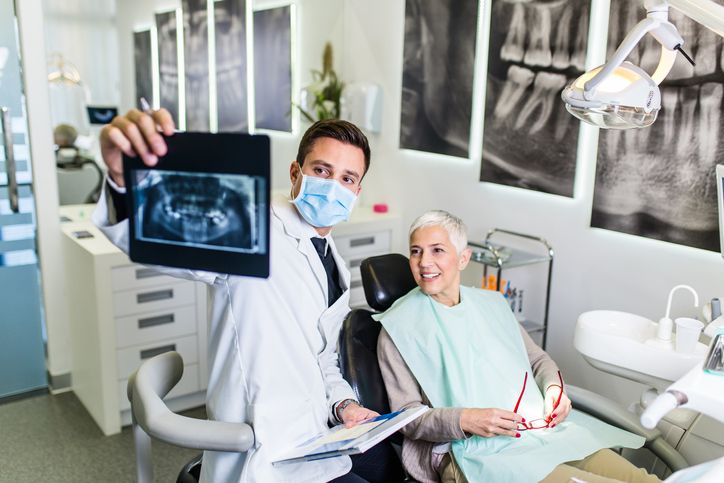Oral cancer is a serious and potentially life-threatening condition that affects millions of people worldwide. Detecting oral cancer early is crucial for successful treatment and improved outcomes. To protect yourself, you need to know the signs of oral cancer and your individual risk factors.

What is Oral Cancer?
Oral cancer refers to cancer that develops in the mouth or oral cavity. This includes the lips, tongue, gums, cheeks, roof, and floor of the mouth, as well as the throat. Oral cancer can manifest in various forms, including squamous cell carcinoma. This accounts for the majority of cases.
Signs of Oral Cancer
If you notice any of the following signs, you should contact your dentist immediately.
Persistent Mouth Sores
One of the most common signs of oral cancer is the presence of persistent mouth sores that do not heal within two weeks. These sores may appear as white or red patches, ulcers, or lumps in the mouth or on the lips. If you notice any unusual lesions in your mouth that do not go away, it’s essential to have them evaluated by a dentist or healthcare professional.
Persistent Sore Throat
A persistent sore throat or hoarseness that does not resolve within a few weeks may be a sign of oral cancer. Also, be wary if it is accompanied by other symptoms, such as difficulty swallowing or a lump in the throat. If you experience persistent throat discomfort or changes in your voice, it’s important to see a healthcare professional for evaluation.
Lumps or Thickening in the Mouth or Neck
Lumps or thickening in the mouth, throat, or neck can indicate oral cancer. These lumps may be painless or tender to the touch. They may also increase in size over time. If you notice any unusual lumps or swelling in your mouth or neck, it’s essential to have them examined by a dentist. Furthermore, if you feel like something is stuck in your throat, it’s essential to seek medical attention promptly.
Risk Factors for Oral Cancer
While there are many risk factors for oral cancer, these are some of the more common ones. It is also important to talk to your dentist to gauge your risk for cancer.
Tobacco Use
Tobacco use is one of the most significant risk factors for oral cancer. This includes smoking cigarettes, cigars, or pipes, as well as chewing tobacco or using smokeless tobacco products. The harmful chemicals in tobacco products can damage the cells in the mouth and increase the risk of developing cancer.
Heavy Alcohol Consumption
Heavy alcohol consumption is another huge risk factor for oral cancer. Alcohol can irritate the cells in the mouth and throat, making them more susceptible to cancerous changes. The combination of tobacco and alcohol use further increases the risk of oral cancer.
HPV Infection
Infection with the human papillomavirus (HPV), particularly certain high-risk strains, has been linked to an increased risk of oral cancer. HPV-related oral cancers often occur at the back of the throat or base of the tongue. Furthermore, these are more common in younger individuals.
